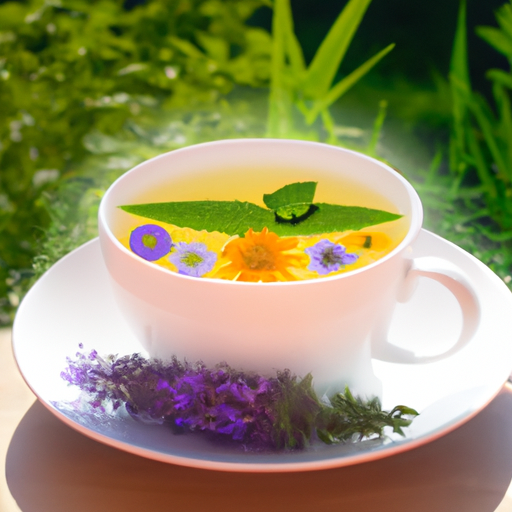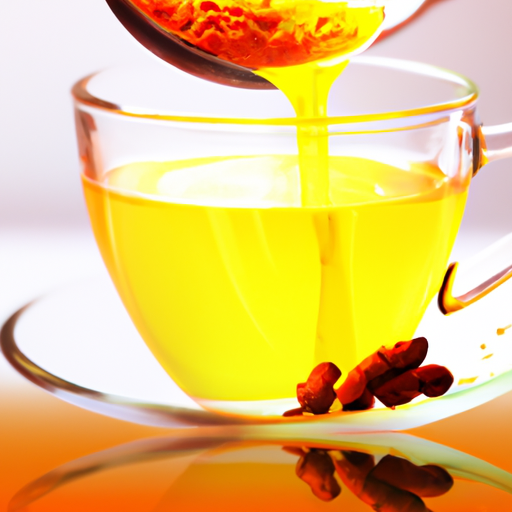Did you know that approximately 31.6 million people in the United States suffer from eczema? That’s a staggering number, and if you’re one of those individuals, you know firsthand how uncomfortable and frustrating it can be. The constant itching, redness, and inflammation can make it difficult to go about your daily life.
But what if I told you that there are natural remedies that can help alleviate your symptoms? In this article, I will share with you the power of herbs and how they can provide relief for your eczema. By incorporating certain herbs into your daily routine, you can soothe your skin, reduce inflammation, and promote healing from within.
From chamomile and calendula to turmeric and aloe vera, these herbs have been used for centuries to treat various skin conditions. So, if you’re ready to take a holistic approach to managing your eczema, keep reading to discover the incredible benefits of herbal remedies.
Key Takeaways
- Chamomile tea has anti-inflammatory properties that can soothe eczema and relieve itching and dryness.
- Calendula promotes healing, reduces redness and swelling, and relieves dryness and cracking associated with eczema.
- Turmeric has anti-inflammatory and antioxidant properties that can reduce inflammation, itching, and redness caused by eczema.
- Drinking herbs like chamomile tea, incorporating witch hazel, and using natural moisturizers can help provide relief and promote healing for eczema.
Chamomile
You can drink chamomile tea to soothe your eczema, as it’s anti-inflammatory properties may provide relief and comfort to your irritated skin.
Chamomile is a herb that’s been used for centuries for its medicinal benefits. It’s known for its calming and soothing effects, making it a popular choice for treating skin conditions like eczema.
Chamomile tea can help reduce inflammation and redness associated with eczema, while also relieving itching and dryness. The antioxidants in chamomile tea can also help protect your skin from further damage and promote healing.
To enjoy the benefits of chamomile tea for eczema, simply steep a chamomile tea bag in hot water for a few minutes, then drink it warm.
Now, let’s move on to the next herb that can help with your eczema, calendula.
Calendula
Calendula is a powerful herb that has been used for centuries to promote healing and skin regeneration. It’s anti-inflammatory properties help soothe irritated skin and reduce redness and swelling. Additionally, calendula is known for its ability to relieve dryness and cracking, making it a great natural remedy for eczema.
Promote Healing and Skin Regeneration
Using chamomile tea can help promote healing and skin regeneration for eczema. Chamomile tea contains compounds that promote collagen production, which is essential for repairing and strengthening the skin. Additionally, chamomile has anti-inflammatory properties that can help reduce inflammation associated with eczema flare-ups. When consumed as a tea, chamomile can also provide a soothing effect on the skin, reducing itching and discomfort.
It’s important to note that chamomile tea should be brewed properly to maximize its benefits. Steep one teaspoon of dried chamomile flowers in hot water for about five minutes, then strain and enjoy.
Chamomile tea can be an effective addition to your eczema treatment routine, helping to promote healing and restore the health of your skin. This herbal remedy can also help relieve dryness and cracking, providing much-needed relief for eczema sufferers.
Relieve Dryness and Cracking
To combat dryness and cracking, try incorporating chamomile tea into your skincare routine as it can work wonders in promoting skin hydration and nourishment. Chamomile has been used for centuries to soothe irritated skin and reduce inflammation. It contains essential oils and antioxidants that help moisturize the skin and prevent excessive dryness.
Drinking chamomile tea regularly can also help regulate the body’s immune response, which can be beneficial for eczema sufferers.
In addition to chamomile tea, there are other natural remedies that can help relieve dryness and cracking. For example, applying aloe vera gel or coconut oil topically can provide much-needed moisture and create a protective barrier on the skin.
These prevention tips and natural remedies can be effective in alleviating eczema symptoms.
Now, let’s move on to discuss the benefits of turmeric.
Turmeric
Add a pinch of golden turmeric to your warm cup of milk and let its vibrant hue swirl and mingle with the creamy liquid. Allow its soothing properties to calm your eczema-ridden skin. Turmeric is known for its anti-inflammatory and antioxidant properties, making it a beneficial herb for relieving eczema symptoms. It can help reduce inflammation, itching, and redness associated with eczema flare-ups. When using turmeric for eczema, it’s important to start with a low dosage and gradually increase it to avoid any potential side effects. Incorporating turmeric into your daily routine can be as simple as adding it to your meals or drinking it as a tea. Remember to consult with a healthcare professional before using turmeric as a treatment for your eczema.
Now, let’s explore the next herb on our list: aloe vera.
Aloe Vera
When it comes to treating eczema, Aloe Vera is a powerful herb that can offer multiple benefits. Firstly, it helps to hydrate and moisturize the skin, which is essential for soothing and healing eczema flare-ups.
Additionally, Aloe Vera has properties that can alleviate the itching and burning sensation commonly associated with eczema, providing much-needed relief. I’ve personally found Aloe Vera to be a fantastic natural remedy for my eczema, and I highly recommend incorporating it into your skincare routine.
Hydrate and Moisturize the Skin
Sipping on herbal infusions is like giving your skin a refreshing drink, helping to quench its thirst and lock in much-needed moisture, making it one happy camper in the battle against eczema. When it comes to naturally hydrating and moisturizing eczema-prone skin, there are several holistic approaches you can take.
First, it’s important to stay hydrated from the inside out. Drinking plenty of water throughout the day helps to keep your skin hydrated and supple. Additionally, incorporating herbal teas like chamomile or calendula can provide soothing effects and promote moisture retention in the skin.
Second, external hydration is crucial. Using natural moisturizers such as shea butter or coconut oil can help to soothe and moisturize dry, irritated skin. Applying these moisturizers immediately after showering or bathing helps to lock in moisture and prevent further water loss.
By adopting these holistic approaches to managing eczema symptoms, you can effectively hydrate and moisturize your skin, providing relief from dryness and discomfort. Now, let’s move on to the next section and explore how herbs can alleviate itching and the burning sensation.
Alleviate Itching and Burning Sensation
To ease the uncomfortable sensation of itching and burning, incorporating natural remedies can work wonders for your skin. When dealing with eczema, it’s essential to find ways to reduce inflammation and soothe irritated skin.
Luckily, there are several herbs that can help alleviate these symptoms. One effective herb is chamomile, which has anti-inflammatory properties that can calm the skin and reduce redness. Another great option is aloe vera, known for its cooling and moisturizing effects. Applying aloe vera gel directly to the affected areas can provide relief from itching and burning.
Additionally, calendula, with its healing and anti-inflammatory properties, can help soothe the skin and reduce irritation. These natural remedies can be a game-changer for eczema sufferers, providing much-needed relief.
Now, let’s dive into the next section about the benefits of burdock root.
Burdock Root
Burdock Root is an incredible herb that can offer multiple benefits for our overall health and well-being. One of its key points is its ability to detoxify the body and purify the blood. By promoting the elimination of toxins and impurities, Burdock Root helps to support the body’s natural detoxification processes and improve our overall health.
Additionally, this amazing herb has been known to improve skin health and appearance. Its anti-inflammatory and antioxidant properties help to reduce inflammation, soothe irritated skin, and promote a healthy complexion. Incorporating Burdock Root into your daily routine can be a holistic approach to achieving radiant skin and a healthier body.
Detoxify the Body and Purify the Blood
Ingesting herbs like dandelion and nettle can help cleanse your body and purify your blood, leaving your skin feeling rejuvenated. Detoxifying the body is an important step in improving overall health, especially when dealing with eczema. Dandelion is known for its diuretic properties, which can aid in flushing out toxins and excess fluids from the body. Nettle, on the other hand, is rich in vitamins and minerals that support the liver and promote detoxification. By incorporating these herbs into your daily routine, you can effectively eliminate harmful substances from your body, allowing your skin to heal and regenerate.
This detoxification process sets the stage for the subsequent section, focusing on how herbs can improve skin health and appearance.
Improve Skin Health and Appearance
Enhance the health and appearance of your skin by incorporating these powerful natural remedies into your daily routine! To improve skin health and combat eczema, consider adopting a skin-nourishing diet and incorporating these natural remedies.
-
Chamomile: This herb’s anti-inflammatory properties help soothe irritated skin and reduce redness. Incorporate it into your routine by drinking chamomile tea or applying a chamomile-infused cream topically.
-
Calendula: Known for its healing properties, calendula promotes skin regeneration and reduces inflammation. You can apply calendula oil or cream directly to affected areas for relief.
-
Burdock root: This herb is widely used to detoxify the body and purify the blood, which can improve overall skin health. Incorporate burdock root into your routine by drinking it as a tea or taking it in supplement form.
By incorporating these natural remedies into your routine, you can improve the health and appearance of your skin. Transitioning into the subsequent section about ‘licorice root,’ let’s explore its benefits for eczema relief.
Licorice Root
Licorice root, with its soothing properties, can work wonders in alleviating the symptoms of eczema, reminding us that sometimes the simplest remedies are the most effective. Licorice root benefits the skin in several ways. First, it contains anti-inflammatory compounds that help reduce redness and swelling, providing relief from the itching and irritation associated with eczema. Second, licorice root tea can be consumed or applied topically to moisturize the skin and promote healing. Additionally, licorice root has antimicrobial properties, which can prevent secondary infections that often occur with eczema flare-ups.
| Licorice Root Benefits | Licorice Root Tea |
|---|---|
| Reduces inflammation | Soothes the skin |
| Moisturizes the skin | Promotes healing |
| Prevents infections |
Licorice root is a natural and holistic remedy that can be incorporated into your skincare routine to improve the symptoms of eczema. Next, let’s explore the benefits of witch hazel in managing eczema.
Witch Hazel
Witch Hazel is a powerful herbal remedy that I’ve found to be incredibly effective in soothing and cooling irritated skin. It’s natural astringent properties help to reduce inflammation, swelling, and redness, providing relief to those suffering from eczema.
I’ve personally experienced the benefits of using Witch Hazel on my skin, and I highly recommend it as a holistic approach to treating eczema.
Soothe and Cool Irritated Skin
Want to find a natural remedy that will cool and soothe your irritated skin caused by eczema? Look no further! Incorporating soothing skincare routines and natural remedies for eczema can help provide relief and promote healing. One herb that can be particularly beneficial for soothing and cooling irritated skin is Witch Hazel. It has anti-inflammatory properties that can help reduce redness and inflammation. Additionally, Witch Hazel can help alleviate itching and provide a cooling sensation on the skin. To give you an idea of the emotional impact, here is a table showcasing the soothing effects of Witch Hazel:
| Soothing | Cooling | Calming |
|---|---|---|
| Yes | Yes | Yes |
By incorporating Witch Hazel into your skincare routine, you can effectively reduce swelling and redness caused by eczema.
Reduce Swelling and Redness
To effectively reduce swelling and redness, you can easily incorporate a simple and soothing remedy into your skincare routine. One of the best ways to reduce inflammation and find natural remedies for eczema is by using herbs.
Here are three powerful herbs that can help alleviate the symptoms of eczema:
-
Chamomile: Known for its anti-inflammatory properties, chamomile can help reduce redness and itching. You can brew a cup of chamomile tea and apply it to the affected area using a clean cloth.
-
Calendula: This herb has been used for centuries to promote healing and reduce inflammation. You can make a homemade calendula salve by infusing dried calendula flowers in olive oil and applying it to your skin.
-
Witch Hazel: Witch hazel is a natural astringent that can help reduce swelling and soothe irritated skin. You can apply witch hazel directly to the affected area using a cotton ball.
Incorporating these herbs into your skincare routine can provide relief from eczema symptoms and promote overall skin health.
Frequently Asked Questions
Are there any potential side effects or interactions to consider when using these herbs for eczema relief?
When using herbal remedies for eczema relief, it’s important to consider potential herb interactions and side effects. While these remedies can be effective, it’s crucial to consult with a healthcare professional for personalized advice.
Can these herbs be used in conjunction with other topical treatments or medications for eczema?
Using herbs alongside other treatments for eczema has both pros and cons. While herbs may offer additional relief, combining them with medications for eczema should be done cautiously to avoid any potential interactions or side effects.
How long does it typically take to see results when using these herbs for eczema relief?
Results from using these herbs for eczema relief can vary, but typically it takes a few weeks to notice improvements. It’s important to be aware of potential side effects or interactions, so consult with a healthcare professional.
Are there any specific dosages or preparations that should be followed when using these herbs for eczema?
Dosage guidelines and preferred preparations are crucial when using herbs for eczema. It’s important to note that herbal remedies vary, but a general recommendation is to follow the instructions on the product or consult a healthcare professional.
Are these herbs safe to use for children or during pregnancy and breastfeeding?
During pregnancy and breastfeeding, it is important to consult with a healthcare professional before using herbs for children with eczema. Safety and dosage can vary, and it’s crucial to ensure the well-being of both the mother and the child.
Conclusion
In conclusion, incorporating herbal remedies into your daily routine can be a beneficial way to help relieve eczema symptoms. Chamomile, calendula, turmeric, aloe vera, burdock root, licorice root, and witch hazel are all herbs that have been known to provide relief for eczema sufferers. For example, Sarah, a 30-year-old woman with chronic eczema, found that drinking chamomile tea twice a day helped reduce her itching and inflammation.
Remember to consult with a healthcare professional before starting any new treatments.










